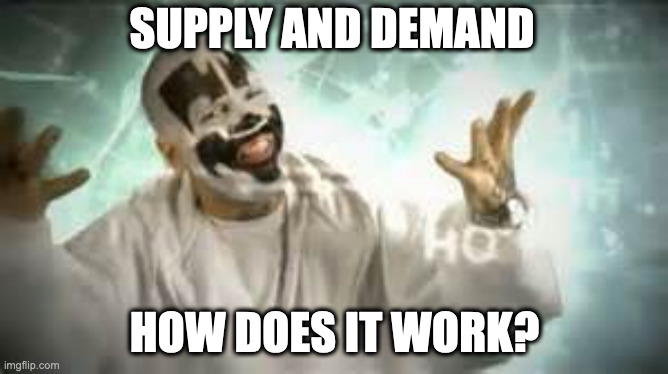First up: Scottish commentator Neil Oliver wonders about all the questions we’re not allowed to ask about Flu Manchu.
Daily Mail online carried a headline on the 8th of June: Healthy young people are dying suddenly and unexpectedly from a mysterious syndrome – as doctors seek answers through a new national register.
This is SADS – an acronym that stands for Sudden Adult Death Syndrome – and according to the Royal Australian College of GPs, it occurs most commonly in people under 40. This is properly scary; I don’t mind telling you. Healthy young people are going to their beds of an evening and not waking up ever again, or otherwise going about their everyday business and dropping dead, for no identifiable medical reason.
The best anyone in the health professions can apparently do is describe it as mysterious, baffling even, that there are people under 40 dropping in their traces for no known cause. At the same time, around the world, there have been reports of many hundreds of sports men and women dying suddenly and unexpectedly in the past year – super fit individuals uniquely focused on their own health – keeling over dead, often on the field of play.
Here at home we have had updated information campaigns about how important it is to be aware of the incidence of heart attacks and strokes. It has been deemed appropriate to remind us as well that heart attacks are not unknown in children. It’s almost as if we’re not to be unduly alarmed by the sight of passers-by dropping to their knees and clutching at their chests. Elsewhere there is a poster campaign about a rise in the number of cases of shingles. The small print on the posters mentions shingles may strike people with lowered immune systems. Fancy that.
Deaths have been attributed by coroners to the Covid vaccines. The numbers are disputed, but people have died on account of the jabs. That much at least is undeniable. Around the world there are millions of cases of alleged adverse reactions to the jabs – lives severely compromised in some cases. I won’t get into the numbers, because those are always disputed too – but the facts remain. People are dying.
The elephant in the room here is the Covid-19 vaccines – and again I make no apology at all about banging on about this topic week after week. The push to move on, to leave all talk of Covid and pandemic behind us, is palpable and, I would say, downright sinister. I am nowhere near ready to move on – not while there is still so much we do not know, so much we are not allowed to say, think and ask.
We are told all about Covid 19 – and all manner of ways in which it might affect health long after a person has recovered from the initial infection. But as well as the pandemic, the other momentous arrival among us – indeed in just the past year and a half – is the biggest mass vaccination campaign in the history of the world – vaccination with products that had emergency approval, but in my opinion are experimental and for which no long-term data is available – on account of their being brand new and just out of the box.
Billions of people around the world have submitted to the procedure. In a coercive and bullying atmosphere created by politicians and the media, that was mandatory in feel, if not in fact, unknown and unknowable numbers of people did so simply to keep their jobs, to get on a plane and go on holiday or to a gig – and yet in the midst of one report after another of otherwise unexplained sudden deaths in the past 18 months or so, the only emergent variable, the only new thing in the world that we are not allowed to discuss, absolutely not allowed to discuss far less point accusatory fingers at, is the mass vaccination programme.
Again, I ask the question I posed at the top of this piece – are we stupid? Or are we just being treated as if we’re stupid? Which is it?
Next: Oliver notes how mass protests and even open revolt against the green globalist/Build Back Better agenda are being downplayed or ignored by the media:
Sri Lanka was a product of that government following, you know, the the madness of [World Economic Forum] inspired policies: Net Zero, the stripping of fertilizers, and all the rest of it…wholesale strife, collapsing crops and all the rest of it. You would think in a sane world the politicians in each of the countries would respond to the people, but I suspect they won’t. We saw something similar in Canada with the trucker’s freedom convoys, but look what happened there. Obviously Justin Trudeau was was told to get a grip of that situation. He clamped down on it violently, arrested bank accounts and took away the funding for that movement.
Bit on Sri Lanka skipped.
I think what you’re looking at in The Netherlands, for example, is the deliberate dismantling of the land owning class. 85% percent of the of the land in The Netherlands is held by farmers, and has been for generations, and that’s an inconvenient situation for globalist leftist politicians who’ve got other ideas for the land, which is specifically to build houses to cope with the with the levels of immigration that are going on. They’ve empowered themselves the politicians to help themselves to 30 percent of the Dutch farmer’s land, and surprise, surprise! Just as I suspect you would or I would, if the government came into our homes and said they were taking 30% everything we had we owned and had worked for, the farmers have said no…It’s a blatant land grab.
It gets harder and harder to ignore the intent by by leftist globalist governments to return us to some form of feudalism. All these people like us owning property, owning homes, living lives independent of the state. You know what the intention is there, to take people’s independence away. Take away their property, take away the land, and if you control the farmland, you control the food. And if you control the food, you control the people. So you can plainly see what the agenda is.
One need not agree with every one of Oliver’s conclusions to agree that the pattern he deduces, of elites acting against the best interests of the countries they govern and the people they ostensibly serve, seems very real.
(Hat tip: Director Blue.)



 (@JackPosobiec)
(@JackPosobiec)